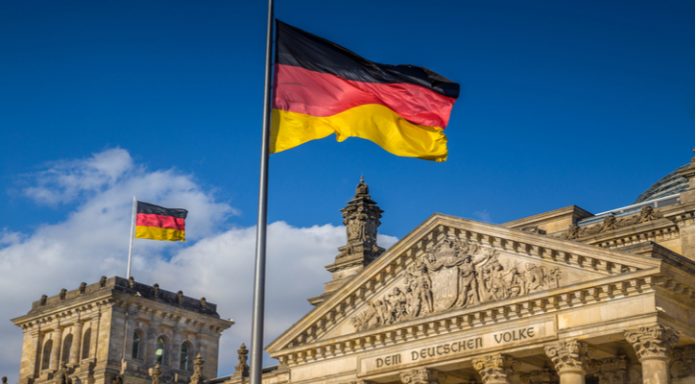- Pound (GBP) supported by hawkish BoE commentary
- Pound set for another weekly gain
- Euro (EUR) drifted yesterday in quiet trade
- German PPI data is due
The Pound Euro (GBP/EUR) exchange rate is holding steady after gains in the previous session. The pair rose +0.02% yesterday, settling on Thursday at €1.1518 and trading in a range between €1.1490 – €1.1535. At 05:35 UTC, GBP/EUR trades -0.00% at €1.1518. The pair is set to rise 0.3% across the week, the 5th straight weekly rise.
The euro came under pressure for a second straight day yesterday, as a lack of fresh economic data so the currency drifts lower. European Central Bank president Christine Lagarde spoke in the European session. However, there was no impact on the Common currency.
Today attention turns to German wholesale inflation data, with the release of the producer price index. Analysts are expecting wholesale inflation in the eurozone’s largest economy to continue cooling in April to 4% year on year, down from 6.7% annually in March.
PPI is considered a lead indicator for consumer prices so could suggest that inflation will continue to ease.
In addition to PPI data, there are several ECB policymakers who are due to speak and could influence the direction of the euro. Recent ECB speakers have adopted a hawkish stance, in line with the ECB at the latest meeting where Christine Lagarde said that inflation has been too high for too long.
The ECB is widely expected to raise interest rates again at the next meeting.
The pound has risen over the past few sessions, boosted by hawkish central bank expectations after BoE Governor Andrew Bailey warned that inflation could remain sticky and that the central bank was prepared to hike rates as much as needed to tame inflation.
There is no high-impacting UK economic data due to be released today., Instead, the pound could be influenced by market sentiment.
Looking ahead, next week sees the release of UK inflation data which will be key for the markets assessing the BoE’s next move. Hot inflation could cement expectations for another June rate hike while cooling inflation could prompt the BoE to pause the hiking cycle.





